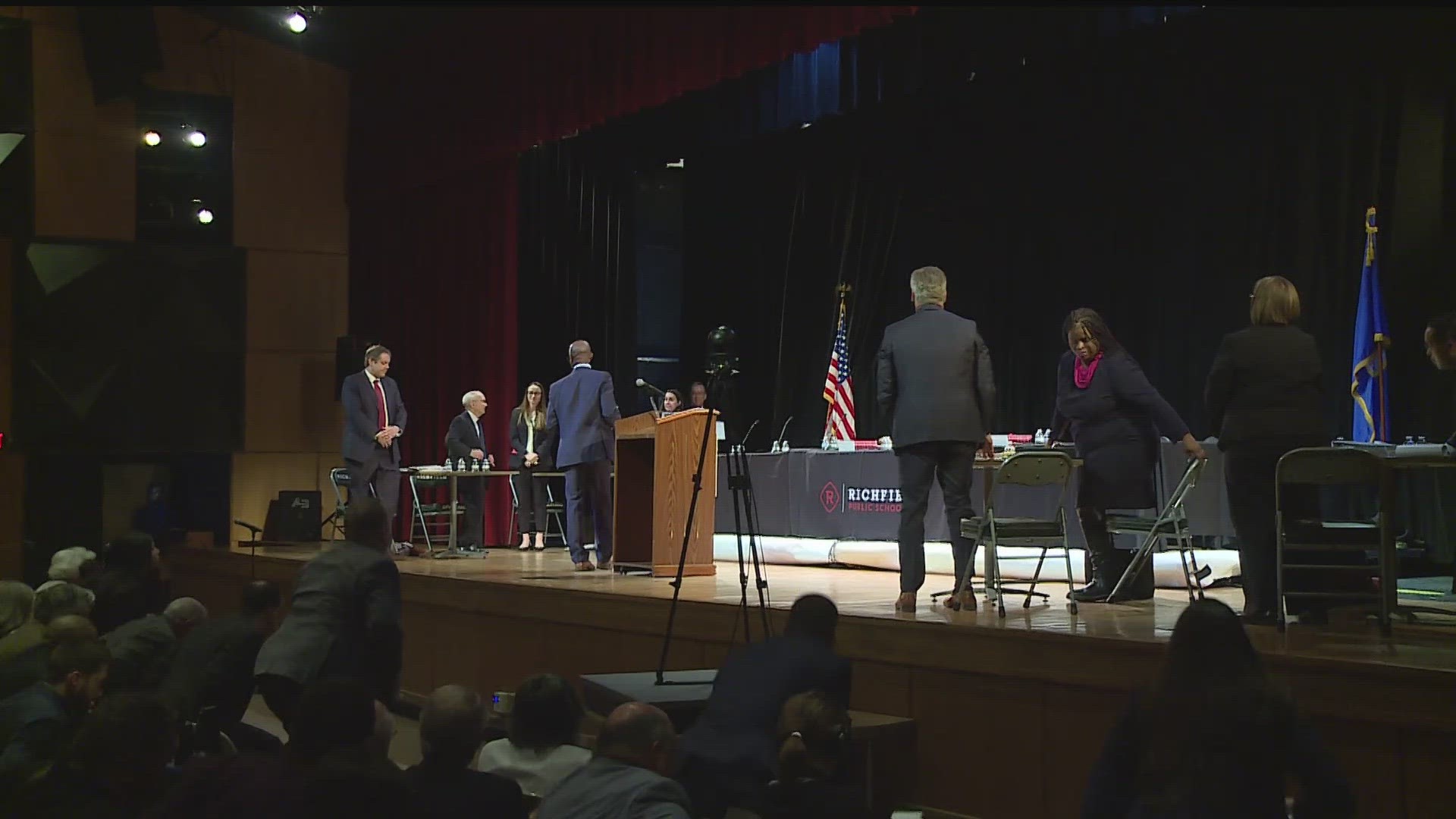RICHFIELD, Minn. — Twice a year, the Minnesota Supreme Court justices visit high schools as a part of the traveling oral arguments program.
On Tuesday, the Supreme Court visited Richfield High School and heard oral arguments for Alejandro Cruz-Guzman v. State of Minnesota. This is a case that's been ongoing since 2015, about whether states should intervene in schools that are "racially segregated."
After a long journey through the district court systems, Cruz-Guzman v. Minnesota ended up at Richfield High School. Attorneys representing Cruz-Guzman were the appellants, while the State of Minnesota was the respondent.
The appellants argued that schools made up primarily of students with the same racial and socioeconomic backgrounds deprive students of color of their constitutional right to an "adequate" education.
They don't want students of color to represent more than 20 percent of the population at any school or for one racial group to make up more than 60% of the school.
"We believe that in a multi-racial multi-cultural society, a system cannot do that if it tolerates and fails to remedy racial isolation that persists in two of the largest districts in the state," Attorney Richard Landon said.
The state is arguing it shouldn't play a role in defining the quality of schools.
"The system of education, like most states does delegate a fair amount of control to the local school boards, with the idea that local school boards have the closest relationships with the local communities," Minnesota's Solicitor General Liz Kramer said.
Then, there's a third party, the interveners. They represent charter schools like Friendship Academy where 93 percent of its students are Black.
"The interveners understand that the courts do need to be involved in defining what a high-quality education is, but it needs to be something more robust, comprehensive than just a racial makeup of a school," Josh Crosson said. Crosson is the Executive Director of EdAllies, an educational nonprofit that primarily serves historically under-served communities.
Crosson explained, by the appellant's definition of "racially integrated schools," places like Friendship Academy would be unconstitutional because it's "too homogenous."
"Friendship Academy is a school designed by and for communities of color, specifically Black Minnesotans to learn about history and art, and study communities of African American heritage, in order to allow students to self-identify in a really strong founded way within their Blackness," Crosson said. "For all intents and purposes, it's a good school. Now according to the plaintiffs, this would be a bad school because it's predominantly Black students."
The supreme court heard arguments on Tuesday from all three sides, and the justices will issue their opinion sometime in the next several months. It's quite possible that the case would have to go back to a lower court for a full trial.
WATCH MORE ON KARE 11+
Download the free KARE 11+ app for Roku, Fire TV, Apple TV and other smart TV platforms to watch more from KARE 11 anytime! The KARE 11+ app includes live streams of all of KARE 11's newscasts. You'll also find on-demand replays of newscasts; the latest from KARE 11 Investigates, Breaking the News and the Land of 10,000 Stories; exclusive programs like Verify and HeartThreads; and Minnesota sports talk from our partners at Locked On Minnesota.
- Add KARE 11+ on Roku here or by searching for KARE 11 in the Roku Channel Store.
- Add KARE 11+ on Fire TV here or by searching for KARE 11 in the Amazon App Store.
- Learn more about the KARE 11+ app for Apple TV in the Apple App Store.
- Learn more about KARE 11+ here.

